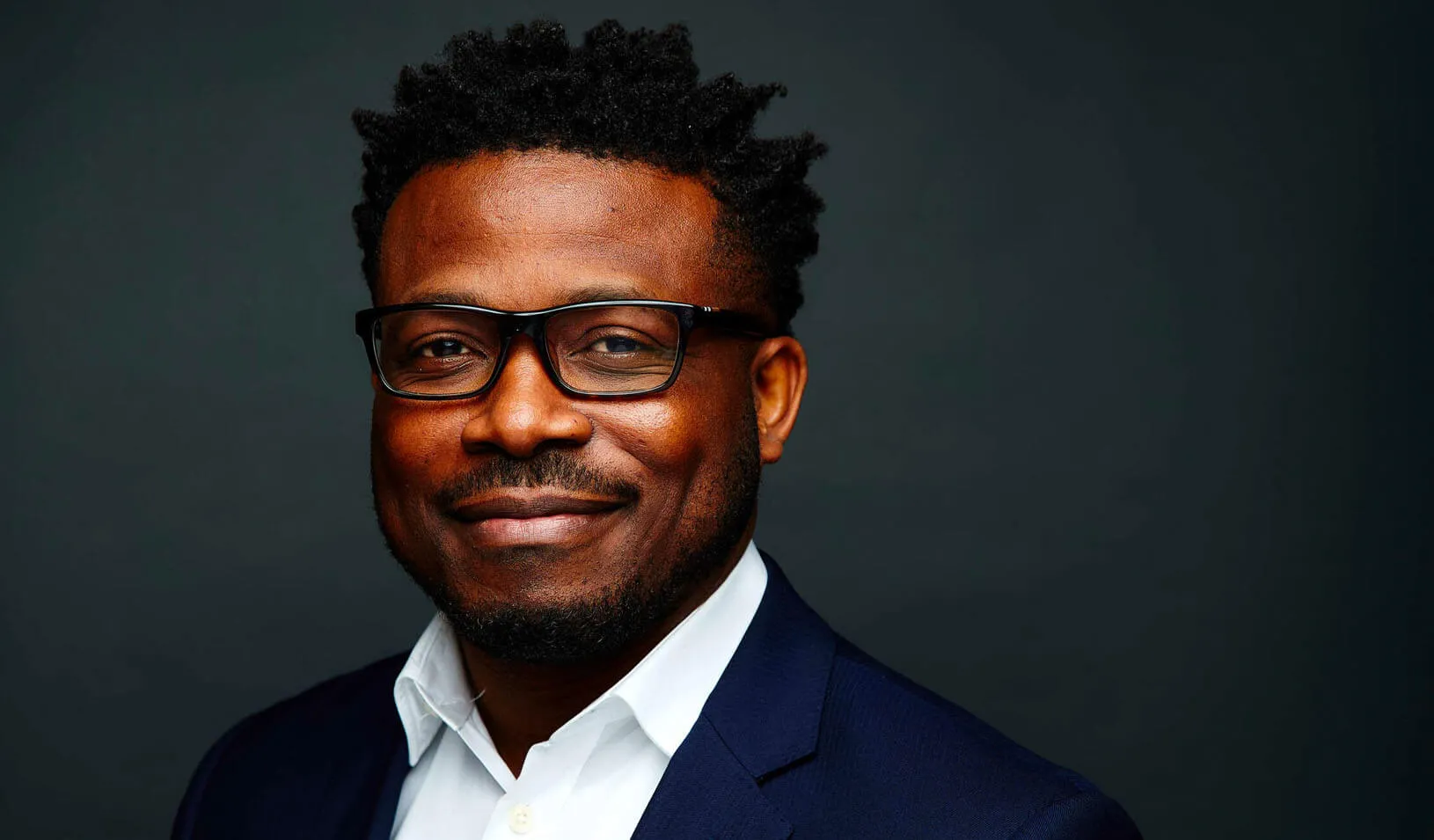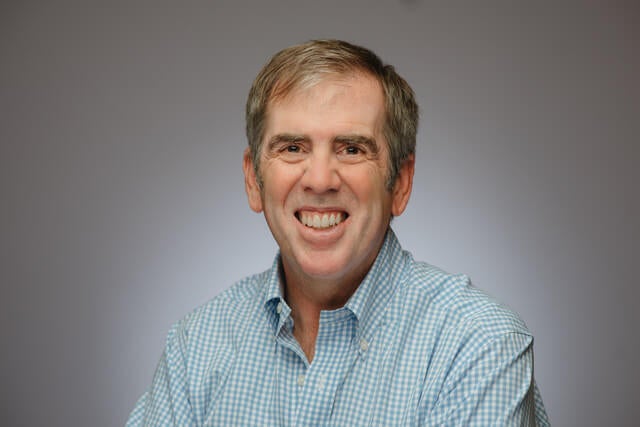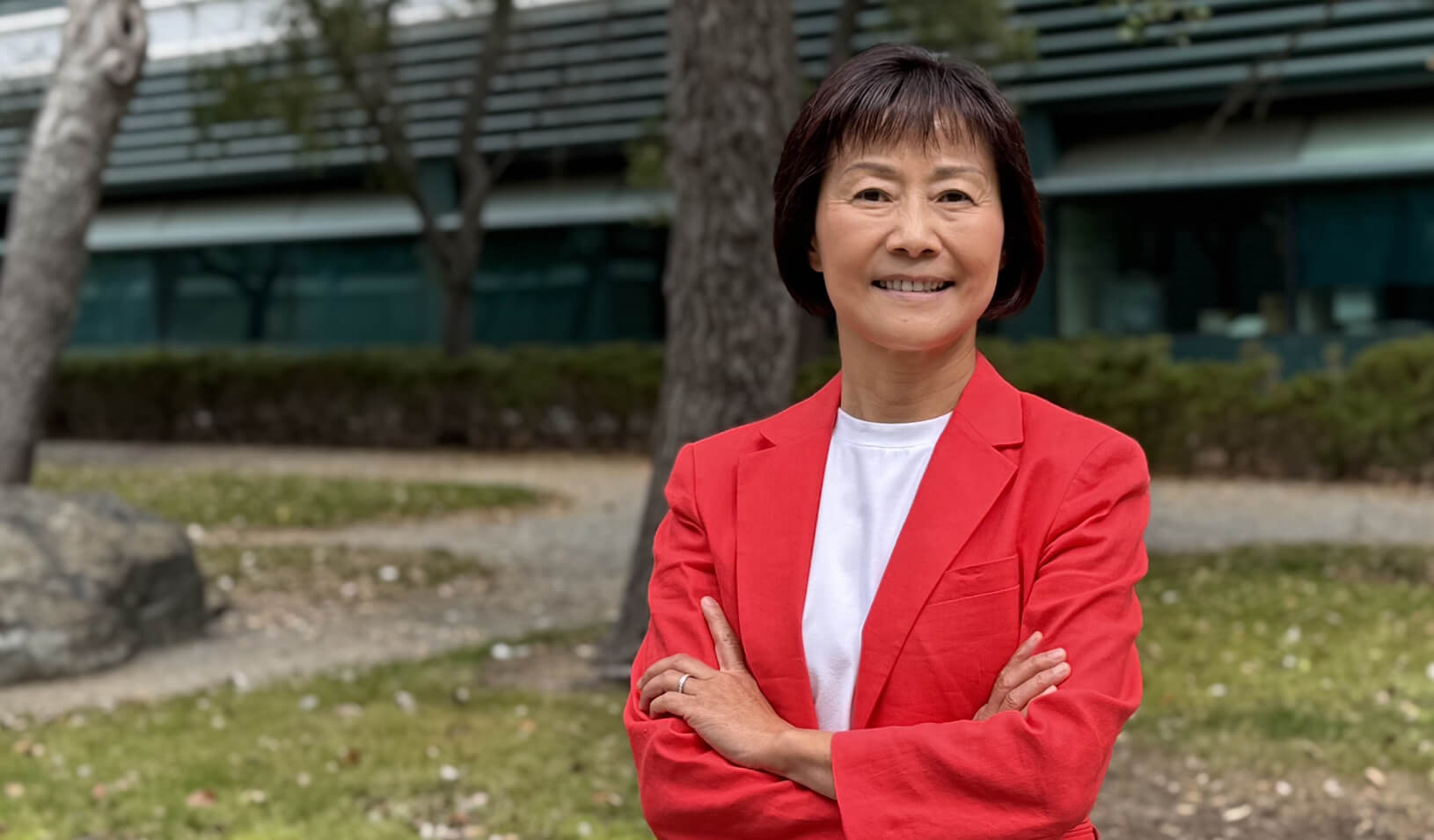Product Strategist Seeks Innovations to Improve Healthcare Systems, Research, and Practices
The Emerging Chief Product Officer program gave product strategy VP Emmanuel Cocodia the skills to grow as an innovator in the health care industry.
January 19, 2023

Emmanuel Cocodia started his career as a geologist, working as a strategy consultant for major oil companies. A London native with degrees in petroleum geoscience and technology management, Emmanuel used data to improve exploration, methodologies, and processes related to oil mining and production.
Then, personal tragedy struck — changing the direction of Emmanuel’s career and life.
“I lost a very close person to cancer,” he says. “This piqued my interest in working in the medical space.” His mother and sister both worked for the National Health Service in England, fueling Emmanuel’s drive to change industries.
“I’m a big thinker, and I love finding solutions to problems,” Emmanuel says. “One of the biggest problems across the world is the issue of health care data. I wanted to find real-world data to help create products for the pharmaceutical and health care industries, and academic research — to help patients in need of doctors, dentists, and other health care services.”
Emmanuel earned his MBA to help him transition into the life sciences industry. He relocated to the U.S., eventually becoming Vice President of Product Strategy at Health Catalyst, a firm that uses data and analytics technology to help health care organizations improve performance and quality of care.
Over time, Emmanuel realized he needed additional education to achieve his potential as a product strategy leader and innovator. “We needed to aggressively get into the market and be better than our competitors,” he recalls. “I needed to buttress my basic skill sets with hands-on experience and knowledge from industry-expert professors, and learning from my peers. It was a no-brainer to identify the best school with the best program: Stanford was my first choice.”
Becoming an Innovative Product Leader
Emmanuel joined the one-week, on-campus Innovative Product Leadership: The Emerging Chief Product Officer program. “I was looking for a program focused on innovation, strategy, product, and tech,” he recalls. “Stanford is located in Silicon Valley — the genesis and brain of the tech industry. I knew I would gain the right skill sets and tools to make a difference.”
The curriculum blends strategy, customer empathy, communication, and leadership. “I knew it would be a hands-on experience, not just theoretical,” Emmanuel notes. “I wanted to learn from peers with different levels of experience, and relearn, to put it that way — so we don’t take things for granted as leaders, [no matter] how many years you’ve been in the field.”
Emmanuel particularly enjoyed a session that took participants into the field — in this case, a shopping mall — to interview potential “customers” for a research project.
“It’s about understanding what the customer wants, not just presuming,” Emmanuel says. “Nine out of ten senior leaders don’t go into the field to hear and understand the pains. This was an eye-opener that helped me identify blind spots in my business unit. After this course, I started to speak to clinical trial participants to understand their experience and patient engagement. It helped us better address particular market needs with our product prototypes.”
Emmanuel also appreciated the program’s holistic approach to personal development. “I liked the early morning exercise, how we got to see other parts of campus, and how the faculty shared their experiences,” he says. “They taught us you can be a successful chief product officer, but if you don’t exercise, eat well, and sleep well, it will affect your work.”
Creating Lifelong Connections
In one week, Emmanuel made connections that will last a lifetime. “I still reach out to my peers to ask for advice, to tell them about a particular problem or issue,” he says. “They know what I’m going through from a product perspective. And they always end up pointing me in the right direction.” Emmanuel has since moved to a health care technology company seeking to transform cancer care. He is up for the challenge. “I see my Stanford peers as my Knights of the Round Table,” he says. “With them, I will keep moving forward and learning.”


